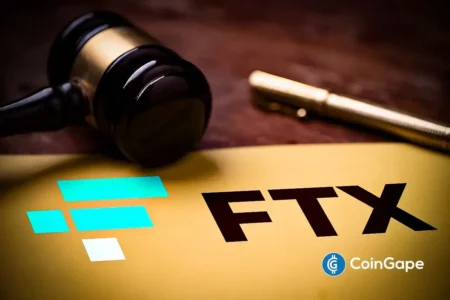U.S. House of Representatives Set to Transform Cryptocurrency Regulation During "Crypto Week"
The U.S. House of Representatives is initiating a pivotal phase in cryptocurrency regulation with the launch of "Crypto Week" on July 14th. This significant event will feature critical legislation, including the CLARITY Act and the GENIUS Act, as lawmakers aim to position the United States as a leading force in the cryptocurrency sector. The move underscores the increasing urgency for a clear regulatory framework that can protect consumers and foster innovation in the digital asset landscape.
Major Legislative Efforts Underway
During "Crypto Week," the U.S. House will closely examine the GENIUS Act, CLARITY Act, and the Anti-CBDC Surveillance State Act. These pieces of legislation are designed to establish a comprehensive regulatory framework for digital assets. According to Chairman French Hill, this proactive approach reflects the House’s commitment to ensuring that the U.S. remains at the forefront of innovation in the global cryptocurrency landscape. Key provisions of these acts include rules for dollar-backed payment stablecoins and safeguards against the introduction of a Central Bank Digital Currency (CBDC) that could jeopardize financial privacy for Americans.
GENIUS Act Gains Traction
In June, the U.S. Senate passed the GENIUS Act with broad bipartisan support, signaling a major step forward for stablecoin regulation. With a favorable vote of 68 to 30, the bill is now in the House’s domain and is expected to receive prioritized consideration during "Crypto Week." Both President Trump and other key officials have expressed support for the GENIUS Act, emphasizing the need for unequivocal rules concerning stablecoins. Chairman Hill highlighted the long-standing demand for regulatory clarity, stating that the passage of this bill would bring the U.S. closer to establishing a functional regulatory environment for digital assets.
CLARITY Act Progresses
The Digital Asset Market Clarity (CLARITY) Act is also making headway, driven by bipartisan support from the House Committees on Agriculture and Financial Services. Introduced by Chairman Glenn Thompson and French Hill, the act proposes designating the Commodity Futures Trading Commission (CFTC) as the primary regulator for digital commodities, effectively limiting the Securities and Exchange Commission’s (SEC) jurisdiction in this area. Lawmakers are signaling a strong commitment to produce clear and actionable guidelines for the digital asset market, aiming to send the CLARITY Act to the Senate for final approval.
Staunch Opposition to CBDC Implementation
The Anti-CBDC Surveillance State Act seeks to prevent the establishment of a central bank digital currency, emphasizing the potential risks to financial privacy that such a system could entail. As lawmakers prepare to champion this bill during "Crypto Week," the message is clear: safeguarding the financial rights of Americans is a top priority. This protective stance aligns with broader concerns about the implications of a CBDC on personal financial freedoms.
A United Front for Crypto Regulation
Leading lawmakers, including Senator Cynthia Lummis, have expressed enthusiasm about the federal government’s ongoing initiatives in cryptocurrency regulation. Collaboration among key figures like Chairman Hill and Thompson underscores a concerted effort to advance meaningful legislation in the crypto space. Rep. Bryan Steil also reinforced the urgency of passing stablecoin regulation and a CBDC ban, arguing that these legislative efforts would not only bolster innovation but also enhance consumer protection and position the U.S. to outperform global competitors in the burgeoning Web3 landscape.
The Path Forward
The deliberations and potential outcomes of "Crypto Week" represent a watershed moment for the cryptocurrency industry in the U.S. Through legislation such as the GENIUS Act and the CLARITY Act, lawmakers are seeking to create a robust framework that balances innovation and consumer protection. With mounting support for these initiatives, the U.S. has a unique opportunity to solidify its status as a global leader in the cryptocurrency space and to pave the way for a new era of digital asset regulation. As the industry awaits the House’s decisions, all eyes will be on the potential impacts these legislative measures will have on the future of cryptocurrency in the United States.
















